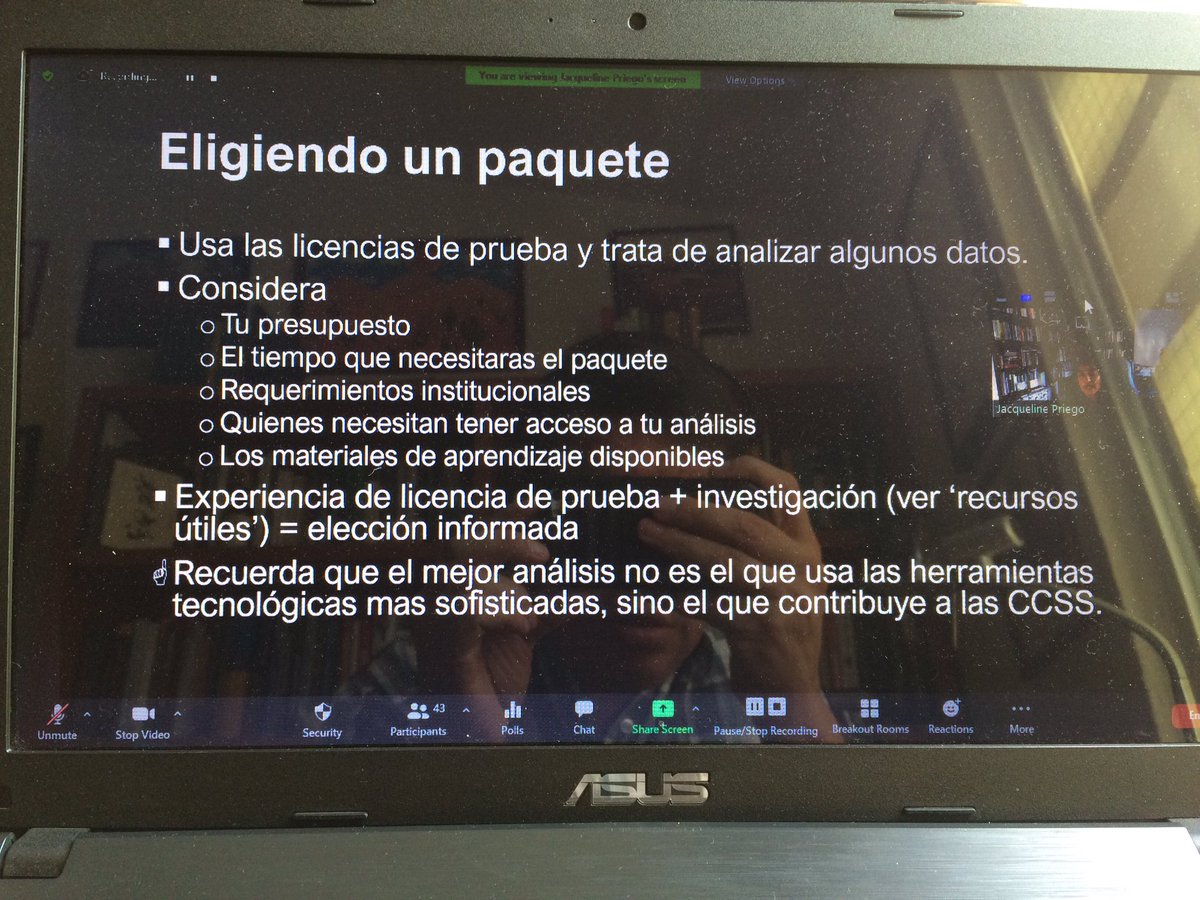
Feliz de tener a la Dra. Jacqueline Priego @JacqPriego impartiendo una clase invitada sobre "Análisis de Datos con CAQDAS (Computer Assisted Qualitative Data Analyais Softwares)".
Mi clase de "Análisis e Interpretación de Datos Cualitativos" #AIDCFLACSO2021 aprenderá muchísimo!
Mi clase de "Análisis e Interpretación de Datos Cualitativos" #AIDCFLACSO2021 aprenderá muchísimo!

"La lógica de usar CAQDAS es dar a los datos cualitativos el tratamiento de análisis cualitativo" - @jacpriego basada en Silver y Lewins 2014. Además los CAQDAS permiten automatizar múltiples actividades analíticas cualitativas. #AIDCFLACSO21 

“El mejor análisis no es el que usa las herramientas tecnológicas más sofisticadas, sino el que contribuye a las ciencias sociales” - @JacqPriego #AIDCFLACSO21 

• • •
Missing some Tweet in this thread? You can try to
force a refresh







